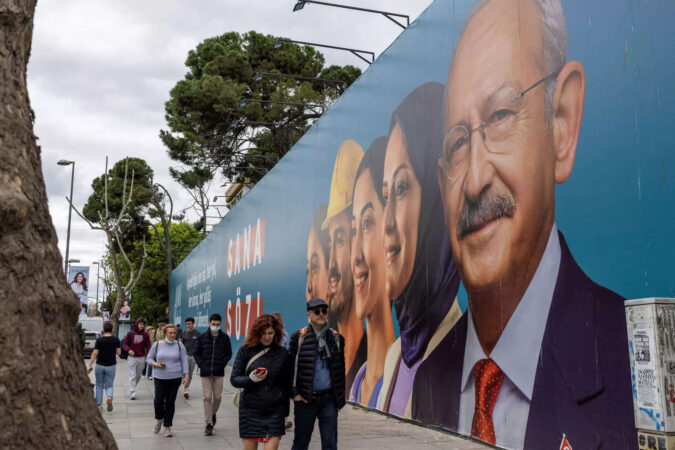NEW DELHI: Turkish citizens are heading to the polls on Sunday for pivotal parliamentary and presidential elections, which are expected to be fiercely contested and could pose the biggest challenge yet to Turkish President Recep Tayyip Erdogan during his two-decade reign.
The vote will either grant Erdogan a new five-year term in office or steer the NATO-member country towards a more democratic path, as his main opponent, Kemal Kilicdaroglu, leader of the centre-left, pro-secular Republican People’s Party (CHP), has advocated.
The elections come as the country faces economic turmoil, which critics blame on the government’s mismanagement of the economy and a sharp cost-of-living crisis.
Additionally, Turkey is still reeling from the aftermath of a devastating earthquake that rocked 11 southern provinces, killing over 50,000 people in unsafe structures.
Internationally, the elections are being closely monitored as a test of the opposition’s ability to unseat a leader who has amassed almost all the powers of the state in his hands.
Here are some key points from Turkey elections-
* For the first time in his 20-year tenure, Erdogan is entering the race trailing behind his opponent, according to opinion polls.
* Surveys indicate that Kilicdaroglu, the joint candidate of a united opposition alliance, has a slight lead over the populist Erdogan, 69.
* If neither candidate garners more than 50% of the votes, the presidential race will proceed to a run-off on May 28th.
* Over 64 million people, including 3.4 million overseas voters, are eligible to vote in the elections, which coincides with Turkey’s centenary of the establishment of its republic.
* Voter turnout in Turkey is typically robust, reflecting a continued faith in civic participation in a country where freedom of expression and assembly have been stifled.
* Turkey’s demographics are also expected to play a role. Most of the provinces struck by the February earthquake were strongholds of Erdogan and his AK Party. But Supreme Election Council (YSK) chief Ahmet Yener said last month that at least 1 million voters in quake-stricken zones are expected not to vote this year amid displacement.
* Erdogan’s government has come under criticism for its delayed and inadequate response to the disaster, as well as its lax enforcement of building codes, which exacerbated the catastrophe.
(With inputs from agencies)
The vote will either grant Erdogan a new five-year term in office or steer the NATO-member country towards a more democratic path, as his main opponent, Kemal Kilicdaroglu, leader of the centre-left, pro-secular Republican People’s Party (CHP), has advocated.
The elections come as the country faces economic turmoil, which critics blame on the government’s mismanagement of the economy and a sharp cost-of-living crisis.
Additionally, Turkey is still reeling from the aftermath of a devastating earthquake that rocked 11 southern provinces, killing over 50,000 people in unsafe structures.
Internationally, the elections are being closely monitored as a test of the opposition’s ability to unseat a leader who has amassed almost all the powers of the state in his hands.
Here are some key points from Turkey elections-
* For the first time in his 20-year tenure, Erdogan is entering the race trailing behind his opponent, according to opinion polls.
* Surveys indicate that Kilicdaroglu, the joint candidate of a united opposition alliance, has a slight lead over the populist Erdogan, 69.
* If neither candidate garners more than 50% of the votes, the presidential race will proceed to a run-off on May 28th.
* Over 64 million people, including 3.4 million overseas voters, are eligible to vote in the elections, which coincides with Turkey’s centenary of the establishment of its republic.
* Voter turnout in Turkey is typically robust, reflecting a continued faith in civic participation in a country where freedom of expression and assembly have been stifled.
* Turkey’s demographics are also expected to play a role. Most of the provinces struck by the February earthquake were strongholds of Erdogan and his AK Party. But Supreme Election Council (YSK) chief Ahmet Yener said last month that at least 1 million voters in quake-stricken zones are expected not to vote this year amid displacement.
* Erdogan’s government has come under criticism for its delayed and inadequate response to the disaster, as well as its lax enforcement of building codes, which exacerbated the catastrophe.
(With inputs from agencies)
